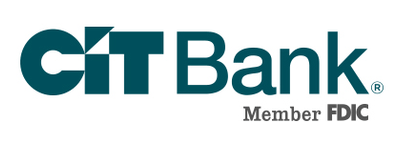CDs vs. Share Certificates: Which Is Better?

Our evaluations and opinions are not influenced by our advertising relationships, but we may earn a commission from our partners’ links. This content is created by TIME Stamped, under TIME’s direction and produced in accordance with TIME’s editorial guidelines and overseen by TIME’s editorial staff. Learn more about it.
Certificates of deposit (CDs) and share certificates are nearly identical types of savings accounts. Savers deposit funds in each account type for a fixed term—usually one month to ten years. In return, they receive a guaranteed annual percentage yield (APY) and total return over the term. In most cases, funds must remain in the account for the entire term, or customers may face an early withdrawal penalty.
Differences between CDs and share certificates stem from the different business structures of banks and credit unions. For-profit banks offer CDs, and not-for-profit credit unions offer share certificates. Due to a Truth in Savings Act provision, credit unions are restricted from using the term “certificates of deposit” (CDs). However, they are permitted to simply use the term “certificates.”
The terminology used to describe interest payments also differentiates CDs and share certificates: Earnings produced by CDs are called interest, while earnings produced by share certificates are called dividends. While they are both guaranteed by the federal government, CDs are insured by the Federal Deposit Insurance Corporation (FDIC), and share certificates are insured by the National Credit Union Administration (NCUA).
 |  | |
|---|---|---|
| APY* | 5.00% | 3.50% |
| Min. deposit | $250 | $1,000 |
| Term | 13 Months | 11 Months |
| CDs | Share certificates | |
|---|---|---|
Provider | Banks | Credit unions |
Payments | Interest | Dividends |
Government deposit insurer | Federal Deposit Insurance Corporation (FDIC) | National Credit Union Administration (NCUA) |
Share certificates are only available to credit union members. Credit unions may limit membership based on eligibility, such as employment, military status, location, or organizational affiliation—eligibility can cover many people. For example, First Tech Federal Credit Union has over 900 partner companies—including technology giants—Microsoft, Amazon, and Intel—whose employees are eligible to join.
Banks offer CDs to their customers, who generally only need to provide a name, address, and government-issued ID to open an account.
Share certificates pay dividends, and CDs pay interest. Although they are referred to by different names, these payments are virtually identical: Rates are fixed in both types of accounts. Credit unions call these payments dividends because account holders are members and, therefore, part-owners.
Although they are called dividends, the IRS treats these payments as interest income for tax purposes. Banks and credit unions provide 1099-INT tax forms to the account holders and the IRS.
The federal government insures CDs and share certificates up to $250,000, but the insuring government entities differ. Bank deposits are insured by the Federal Deposit Insurance Corporation (FDIC), while credit union deposits are insured by the National Credit Union Administration (NCUA).
| Share certificates | CDs | |
|---|---|---|
Terms | 1 month to 10 years | 1 month to 10 years |
APY | Fixed | Fixed |
Tax form | 1099-INT | 1099-INT |
Penalties | Early withdrawal | Early withdrawal |
Since credit unions have eligibility requirements, a bank may be more accessible for some to open a CD. Local and online-only banks can be more convenient and easier to join than credit unions. Online-only banks, such as Ally Bank, may provide better savings and loan rates than credit unions and brick-and-mortar banks; they have lower operational costs due to their lack of physical locations.
If the membership culture of an organization is important to you, credit unions may be a better choice; credit unions are member-owned, not-for-profit financial cooperatives. (Most banks operate as for-profit financial institutions and answer to stakeholders.) The Board of Directors for a credit union is made up of volunteers and exists to serve its members.
Credit unions pass profits on to members via better savings and loan rates. This can lead to higher share certificate rates than a local bank’s CD rates. But this is only sometimes true. Always shop around at banks and credit unions for the best rates and savings products.
Credit union members looking for a low-risk savings option that guarantees returns for a set term should consider opening a share certificate account. If you’re already a member of a credit union that offers competitive savings rates, you might opt for an account with them.
Bank customers looking for a low-risk savings option that guarantees returns for a set term should consider opening a CD. If your bank does not provide competitive interest rates, shop for suitable rates to meet your financial needs.
Share certificate returns are modest compared to other investments, including equities and some alternative investments, which entail more risk. However, other options provide similar returns with the same amount of risk.
Savings and money market accounts at banks and credit unions may earn similar interest rates as CDs and share certificates—while also offering better liquidity. If CD and share certificate rates are not compelling enough, leaving your cash in a savings account often makes sense to avoid early withdrawal penalties if you anticipate needing the money before the end of the term.
Short-term Treasury bills (T-bills) can offer similar—or better—returns with more flexibility and the same risk profile. They are more liquid than CDs and share certificates, very low risk, and can be purchased through an existing brokerage account. Mutual funds and exchange-traded funds (ETFs) that invest in T-bills are also available.
Deciding between CDs and share certificates may depend on where you currently bank or whether you prefer to deposit your money with a bank or credit union.
Terminology differentiates these savings products more than their functionality: Avoid confusion by educating yourself about the similarities and differences between CDs and share certificates. Evaluate all savings and investment decisions based on what will help you achieve your financial objectives.
Before opening a share certificate, it’s important to consider some of its features, which differentiate it from other types of savings accounts.
First, these accounts require you to leave the money in the account for a fixed term; you cannot immediately access the funds without an early withdrawal penalty.
Second, a fixed interest rate in a long-term share certificate may not keep up with inflation if interest rates rise significantly during the term. For this reason, a high-yield savings account may be better in a rising interest rate environment.
Third, other kinds of investments, such as stocks or real estate, can provide higher long-term rates of return (although they also have a higher risk profile).
Yes, a share certificate or CD is a good option if you want to save money at a fixed rate—and for a fixed period. These risk-free savings vehicles offer guaranteed returns, assuming you leave your money untouched for the term.
Yes, but cashing out a share certificate before the term ends will incur an early withdrawal penalty. CDs and share certificates expire at the maturity date. At that point, customers can access the funds without any penalty. You may also choose to reinvest the funds into another savings product. Credit unions and banks allow early withdrawals, but a penalty of 90 to 180 days of interest typically applies.
The information presented here is created by TIME Stamped and overseen by TIME editorial staff. To learn more, see our About Us page.



